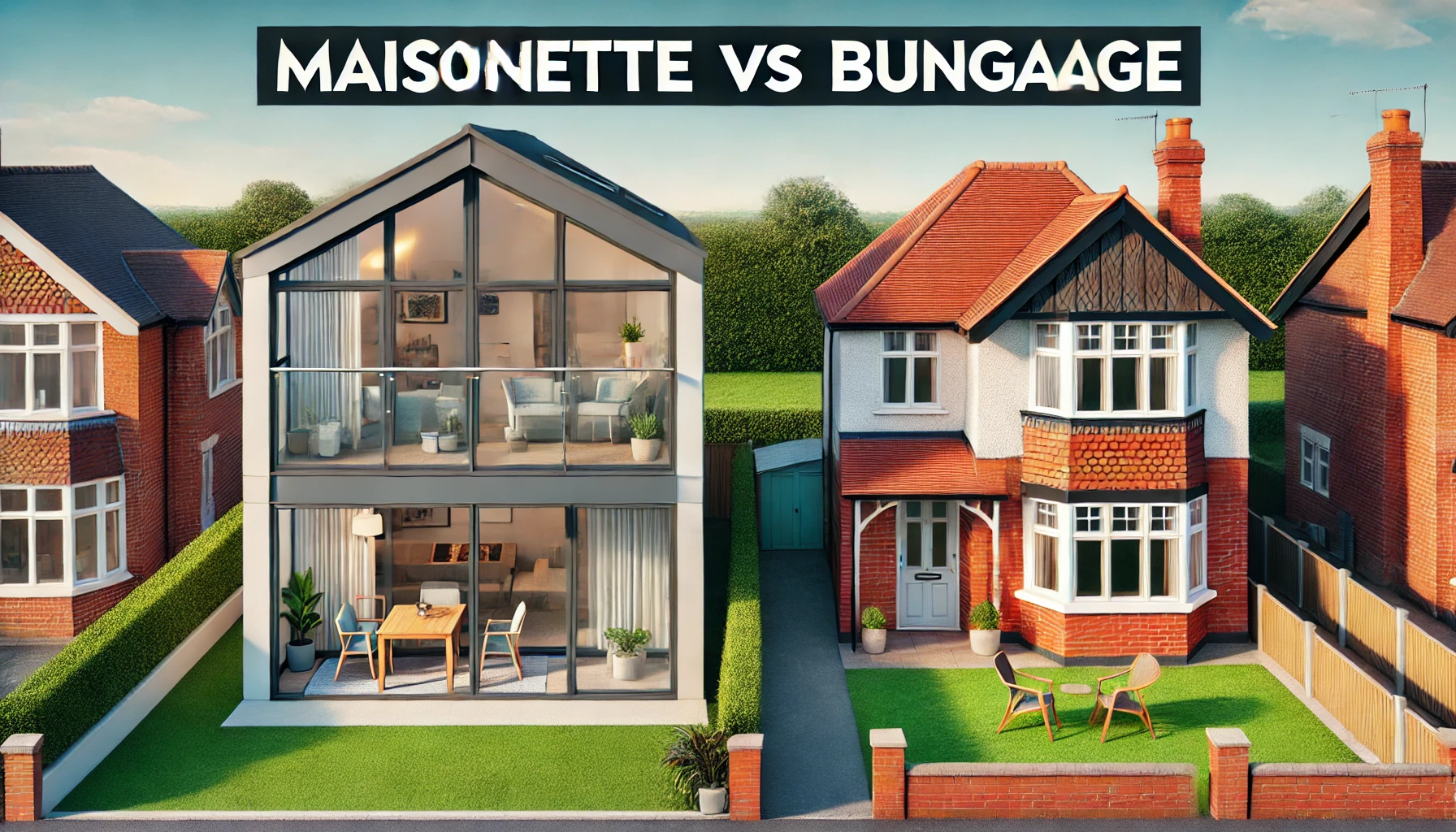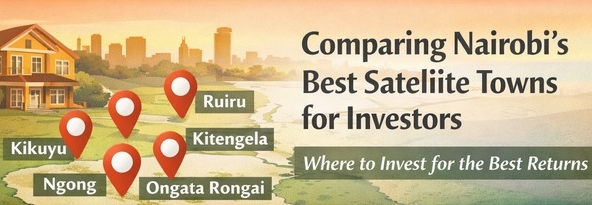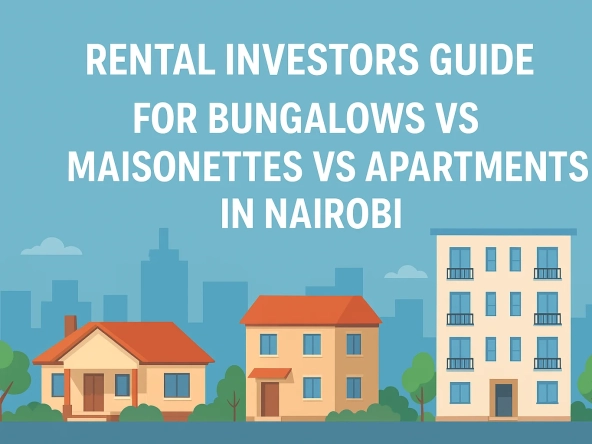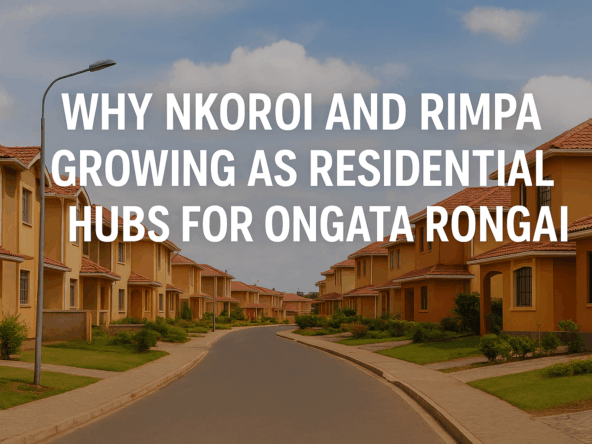When looking to buy a home, one of the biggest decisions you’ll face is choosing between a maisonette and a bungalow.
Both options have unique benefits and drawbacks, and the best choice depends on factors such as lifestyle preferences, family size, budget, and long-term goals.
This comprehensive guide explores the key differences, advantages, and disadvantages of maisonettes and bungalows to help you make an informed decision.
Factors to Consider to choose between a Maisonette and a Bungalow
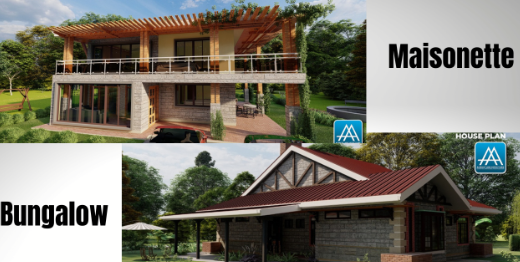
One of the most important decisions when buying a home is choosing between a maisonette and a bungalow. Each type of home has its unique advantages and drawbacks.
The best choice depends on factors such as budget, lifestyle, family needs, own compound, and future plans.
Below is a comprehensive guide on the key factors to consider when deciding between a maisonette and a bungalow.
1. Space and Layout
- Maisonette: A maisonette is a two-story (or more) house, meaning it has more vertical space. This allows for better separation of living and sleeping areas, providing privacy and a clear distinction between social and private spaces.
- Bungalow: A bungalow is a single-story home, which makes it more accessible and easier to navigate, especially for families with young children, elderly members, or people with mobility challenges.
2. Land Utilization
- Maisonette: Since it has multiple floors, a maisonette requires a smaller plot of land, making it a good option for urban areas where land is expensive and limited.
- Bungalow: Due to their sprawling nature, bungalows require larger plots, which means higher land costs and potentially higher maintenance needs for outdoor spaces.
3. Cost Considerations
- Maisonette: The cost of construction for a maisonette is typically higher due to additional structural requirements such as staircases, stronger foundations, and roofing. However, it can be more affordable in terms of land use.
- Bungalow: While bungalows may require more land, the construction costs are often lower per square foot due to simpler designs and materials.
4. Accessibility and Convenience
- Maisonette: Stairs can be inconvenient, especially for elderly individuals or those with mobility issues. However, they offer an added sense of privacy by separating common areas from bedrooms.
- Bungalow: With no stairs, bungalows offer easy accessibility, making them ideal for people of all ages and those who prefer convenience.
5. Privacy and Noise Levels
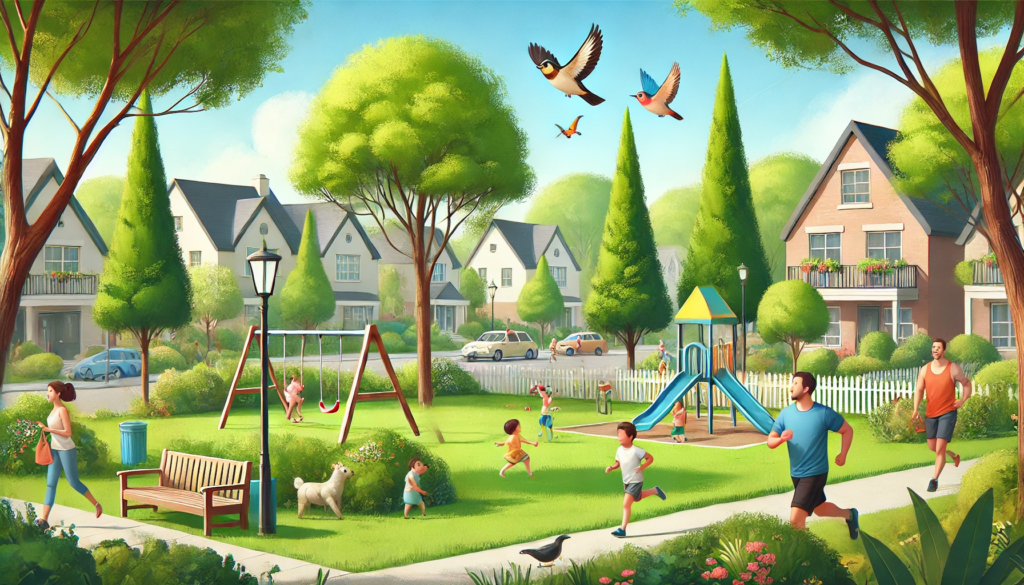
- Maisonette: Bedrooms in maisonettes are usually located on the upper floors, away from common areas, providing more privacy and noise reduction.
- Bungalow: Since all rooms are on the same level, noise can travel more easily, making it less ideal for households where privacy is a priority.
6. Security Considerations
- Maisonette: Elevating living spaces can provide better security, as upper floors are harder for potential intruders to access.
- Bungalow: Being on a single level may pose higher security risks, though this can be mitigated with proper fencing, security systems, and well-lit surroundings.
7. Energy Efficiency
- Maisonette: A maisonette can be more energy-efficient as heat rises, potentially reducing heating costs. However, cooling upstairs rooms may require additional air conditioning.
- Bungalow: Since all rooms are on the same level, heating and cooling tend to be more uniform, though larger floor areas might increase energy consumption.
8. Resale Value and Market Demand
- Maisonette: Maisonettes tend to appeal to larger families and buyers looking for a multi-story living. They can be easier to sell in urban settings where space is a premium.
- Bungalow: Bungalows are often in high demand due to their accessibility and suitability for all age groups. They may have a higher resale value in retirement-friendly areas.
9. Outdoor Space and Landscaping
- Maisonette: Due to their smaller footprint, maisonettes may leave more room for outdoor landscaping, gardens, or even parking spaces.
- Bungalow: Typically built on larger plots, bungalows offer more extensive outdoor space, which is great for gardening, play areas, and outdoor entertainment.
10. Future Expansion and Flexibility
- Maisonette: Expansion options are often limited to outward extensions, which may require additional land.
- Bungalow: Bungalows provide more flexibility for horizontal expansion, making renovations and modifications easier.
Understanding the Differences
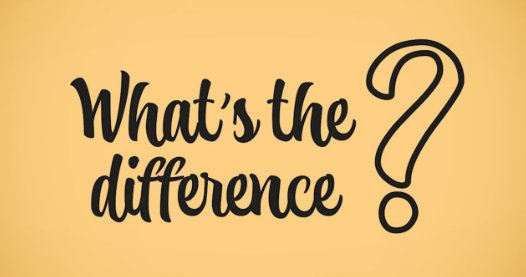
Before deciding which type of home to buy, it is essential to understand what distinguishes a maisonette from a bungalow:
- Maisonette: A maisonette is a multi-story house, typically featuring two or more floors. The living spaces, bedrooms, and other facilities are spread across different levels.
- Bungalow: A bungalow is a single-story house where all the living areas are on one floor. It usually has a more open and spacious layout.
Advantages of Buying a Maisonette
- More Living Space: Maisonettes are ideal for larger families since they provide more space and additional rooms across multiple floors.
- Better Privacy: With bedrooms typically located on the upper floors, maisonettes offer more privacy compared to bungalows.
- Efficient Land Utilization: Since maisonettes utilize vertical space, they allow for more garden or outdoor space within the same plot.
- Enhanced Views and Ventilation: Upper floors provide better views and allow for better airflow, making the home feel fresher and more comfortable.
- Clear Separation of Living Areas: Living rooms, dining areas, and entertainment spaces are often on the ground floor, while private spaces like bedrooms are upstairs.
Disadvantages of Buying a Maisonette
- Higher Construction and Maintenance Costs: Building and maintaining a maisonette is generally more expensive due to the extra materials and labor required for multiple floors.
- Less Mobility for the Elderly and Disabled: Stairs can be challenging for seniors, individuals with disabilities, and small children.
- Higher Heating and Cooling Costs: Multi-story homes can have uneven temperature distribution, requiring more energy for heating and cooling.
- More Cleaning and Maintenance: Larger spaces and multiple floors require more effort to keep the home clean and in good condition.
Advantages of Buying a Bungalow
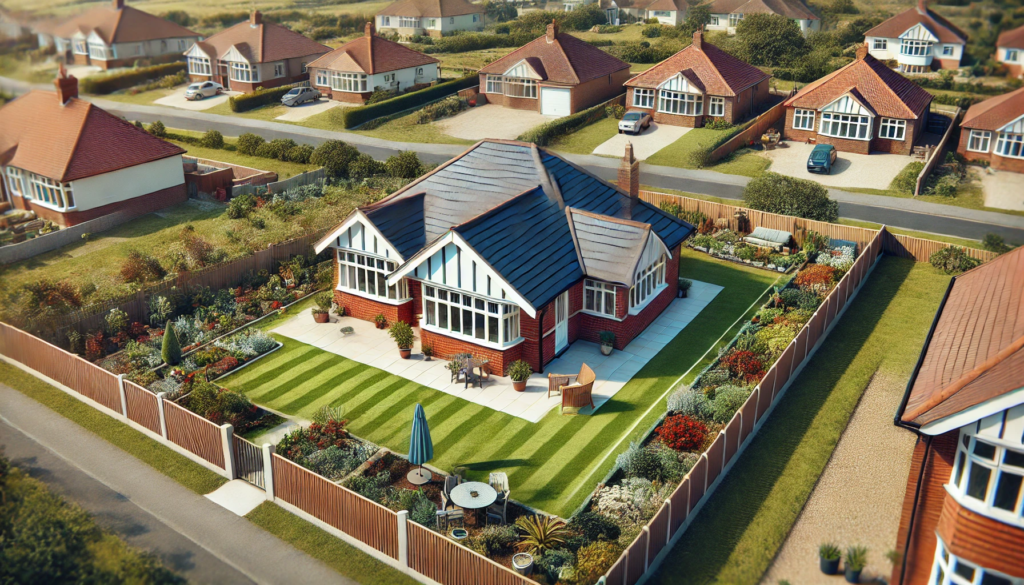
- Easier Accessibility: With everything on one level, bungalows are ideal for families with young children, elderly members, or individuals with mobility challenges.
- Lower Maintenance Costs: Bungalows require less maintenance since they do not have staircases, multiple floors, or additional structural complexities.
- Better Energy Efficiency: Heating and cooling a single-story home is usually more efficient and cost-effective.
- More Open Layout: Bungalows typically have open-plan designs, allowing for more natural light and easy movement between rooms.
- Easier Evacuation in Emergencies: In case of an emergency, exiting a single-story home is faster and safer compared to a multi-story house.
Disadvantages of Buying a Bungalow
- More Land Required: Since all living spaces are spread out on a single level, bungalows require a larger plot of land compared to maisonettes.
- Limited Privacy: Since all rooms are on the same level, it may be difficult to maintain privacy within the home.
- Potential for Higher Land Costs: If land prices are high in your preferred area, buying a bungalow may be more expensive due to the larger land requirement.
- Limited Views and Ventilation: Unlike maisonettes, bungalows lack upper floors that provide enhanced views and better air circulation.
Summary
Choose a Bungalow If:
- You prefer a home with easy accessibility and no stairs.
- You are looking for a home suitable for young children, elderly family members, or people with mobility issues.
- You want a larger outdoor space for gardening or recreation.
- You prefer more privacy, as bungalows are typically not as close to neighbors as multi-story homes.
Choose a Maisonette If:
- You need more indoor space and prefer a multi-story layout.
- You want better separation of living and sleeping areas.
- You prefer a home that takes up a smaller plot but still offers ample living space.
- You want a more affordable option in urban areas where land is limited.
Conclusion
Both maisonettes and bungalows offer unique advantages and drawbacks. The best choice depends on your specific needs, budget, and long-term plans.
If you prioritize space, privacy, and a clear separation of rooms, a maisonette may be ideal. However, if accessibility, lower maintenance, and ease of movement are more important, a bungalow could be the perfect fit.
Ultimately, evaluating your lifestyle, financial situation, and personal preferences will help you make the best decision when purchasing your dream home.
